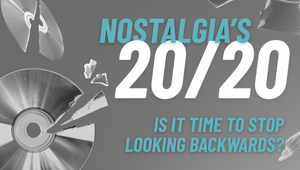
'Aussie Futures' Report Reveals Stark Shift From Mateship to 'Me-Ship' Mentality

Australians are prioritising personal security and individual success over traditional communal values like 'mateship', according to the newly-released 'Havas Labs 2025 Aussie Futures' report.
The study reveals that security has overtaken health, freedom, and community to become the nation's top value at 25%, signalling what researchers term a 'me-ship' era of heightened individualism.
Based on a nationally representative YouGov survey of over 2,000 Australians, the report shows that 'mateship' has plummeted from being valued by 58% of the population in 2022 to just 17% in 2025. Only 23.7% of Australians now report a strong sense of community, while less than half (46.2%) view social groups as essential for achieving life goals.
Olly Taylor, chief strategy officer at Havas Creative Network Australia, identified economic instability and geopolitical tensions as primary catalysts for this cultural transformation.
"Economic instability and geopolitical tensions are the two biggest drivers," he told LBB.
"The need for security both at a national level, driven primarily by the fear of increased global conflicts, and financial security at an individual level being driven by cost of living are the two biggest drivers of the move towards 'me-ship'."
The research reveals Australians' top fears as:
-- increased global conflicts
-- environmental degradation
-- rising inequality
-- misinformation
On a personal level, 72% cited the cost of living as their primary barrier to financial aspirations, with building emergency savings as the top 10-year goal.
"It's not possible to determine how long this will persist," Olly said, "but it is our interpretation that it will as long as geopolitical tensions and economic instability are present.
“Currently there is no sign that these tensions are easing."
While the study focuses on Australia, Olly referenced comparable YouGov data showing only 32% of Americans and 21% of Britons report personal optimism -- significantly lower than Australia's 54%.
Havas has developed a segmentation model identifying six core needs driving contemporary Australian behaviour:
-- support seekers ('help me get by')
-- caring connectors ('help me connect')
-- aspiring altruists ('help me save the world')
-- enjoyment explorers ('help me break free')
-- progress pioneers ('help me progress')
-- status seekers ('help me build status')
Mitchell Long, chief strategy officer at Havas Media Network Australia, explained the marketing implications to LBB.
"There isn't a one-size-fits-all for brands when it comes to selecting the needs and segments,” he said.
“Brands will need to consider which needs are most relevant to the products or services they specifically provide alongside their brand strategy."
Mitchell identified 'progress pioneers' (26% of Australians) as the largest segment, presenting particular opportunities for brands.
"While the traditional life milestones that used to symbolise progress, such as buying your first home have grown increasingly out of reach, the opportunity for brands is to find ways to power our need for what we term 'micro-progress'," Mitchell said.
He also noted examples like banks offering tools to help customers master savings goals as meeting this need for incremental self-improvement.
The 'aspiring altruists' and 'enjoyment explorers' segments (each 21% of the population) present complementary opportunities for brands.
"Altruism represents our need to change the world for the better," Mitchell noted.
"This means there are greater expectations for businesses and brands to play a more active role in correcting some of the wrongs in the world ... This isn't about performative activism, which is experiencing backlash, but genuine long-term commitment."
For ‘enjoyment explorers’, Mitchell emphasised brands' role in providing joy.
"In tough times, it is often assumed brands have to be serious and overly empathetic to the point we forget that brands also play a vital role in bringing joy and magic to people's daily lives."
The report reveals a striking optimism gap – while 54% of Australians feel optimistic about their personal futures, only 34% are optimistic about the nation's direction.















